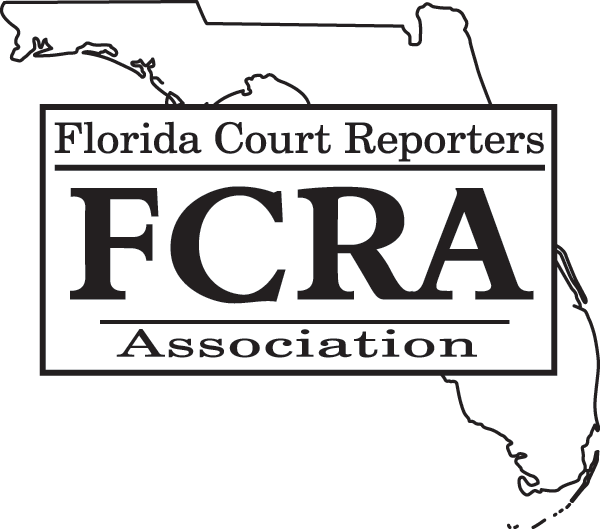Gift-Giving
Applicable to Incentive Gift-Giving
The following statutes, rules, and opinions warrant a second look when deciding whether or not to accept incentive gifts offered by some court reporting firms in exchange for the booking of court reporting assignments. Some questions that should be contemplated before accepting an incentive gift are:
- Whose gift is it?
- Should I deduct the cost of a gift received in exchange for booking a deposition when submitting my sworn affidavit of costs regarding that deposition?
- Am I responsible for incentive gifts that my non-lawyer assistants receive?
- Are there tax implications to receiving an incentive gift from a reporting agency?
FLORIDA STATUTE 501.2105 Attorney’s fees.
(2) The attorney for the prevailing party shall submit a sworn affidavit of his or her time spent on the case and his or her costs incurred for all the motions, hearings, and appeals to the trial judge who presided over the civil case.
|
If a deposition transcript cost is $400, and the attorney’s office received a $50 gift card for booking that deposition, what amount should be sworn to on the sworn affidavit of costs?
|
RULES REGULATING THE FLORIDA BAR:
Rule 4-1.8 CLIENT/LAWYER RELATIONSHIP, CONFLICT OF INTEREST; PROHIBITED TRANSACTIONS
(f) Compensation by Third Party. A lawyer shall not accept compensation for representing a client from none other than the client unless:
- the client consents after consultation;
- there is no interference with the lawyer’s independence of professional judgment or with the client-lawyer relationship;
Should an attorney get the client’s consent before his/her secretary receives a gift card for booking a deposition in the client’s case?
|
Can an attorney’s judgment on hiring the best court reporter for the case be clouded by incentive gifts offered to his/her firm by another court reporting company?
|
Rule 4-3.3 CANDOR TOWARD THE TRIBUNAL
- False Evidence; Duty to Disclose. A lawyer shall not knowingly:
- make a false statement of fact or law to a tribunal or fail to correct a false statement of material fact or law previously made to the tribunal by the lawyer.
Could failing to reduce amount of taxable costs on sworn affidavit by the amount of the incentive gift received by a court reporting agency be considered a false statement to a tribunal?
|
Rule 4-5.3 LAW FIRMS AND ASSOCIATIONS; RESPONSIBILITIES REGARDING NONLAWYER
ASSISTANTS
- Supervisory Responsibility. With respect to a nonlawyer employed or retained by or associated with a lawyer or an authorized business entity as defined elsewhere in these Rules Regulating The Florida Bar:
- a partner, and a lawyer who individually or together with other lawyers possesses comparable managerial authority in a law firm, shall make reasonable efforts to ensure that the firm has in effect measures giving reasonable assurance that the person’s conduct is compatible with the professional obligations of the lawyer;
- a lawyer having direct supervisory authority over the nonlawyer shall make reasonable efforts to ensure that the person’s conduct is compatible with the professional obligations of the lawyer; and
- a lawyer shall be responsible for conduct of such a person that would be a violation of the Rules of Professional Conduct if engaged in by a lawyer if:
- the lawyer orders or, with the knowledge of the specific conduct, ratifies the conduct involved; or
- the lawyer is a partner or has comparable managerial authority in the law firm in which the person is employed, or has direct supervisory authority over the person, and knows of the conduct at a time when its consequences can be avoided or mitigated but fails to take reasonable remedial action.
- Ultimate Responsibility of Lawyer. Although paralegals or legal assistants may perform the duties delegated to them by the lawyer without the presence or active involvement of the lawyer, the lawyer shall review and be responsible for the work product of the paralegals or legal assistants.
Comment: Lawyers generally employ assistants in their practice, including secretaries, investigators, law student interns, and paraprofessionals, such as paralegals and legal assistants. Such assistants, whether employees or independent contractors, act for the lawyer in rendition of the lawyer’s professional services. A lawyer must give such assistants appropriate instruction and supervision concerning the ethical aspects of their employment, particularly regarding the obligation not to disclose information relating to representation of the client.
Should law firms have strong gifting policies in place? How are they communicated and enforced? Should the policy be distributed to vendors? See sample policy language.
Comment: Oftentimes, incentive gifts, such as gift cards and iPads, in exchange for booking depositions are sent to employees’ homes, making it difficult for attorneys to be aware that these gifts are being accepted.
|
FLORIDA BAR ETHICS OPINIONS:
The following ethics opinions may provide some ethical guidelines that could be applicable to incentive gifting.
Opinion 63-14 (July 1963)
No attorney is permitted to make a secret commission on placement of his client’s funds or to obtain commissions from an outside source without the full knowledge, approval and consent of his client. See Opinion 70-13, which indicates that an attorney may receive a fee for referring a client to a financial institution provided that the client consents after full disclosure and the client receives the benefit of the referral fee. Read more about Ethics Opinion 63-14.
Is an attorney permitted to obtain kickbacks from a court reporting agency for booking depositions in his/her client’s case without the full knowledge, approval and consent of his/her client?
|
Opinion 67-25 (October 1967)
An attorney may not refer clients to an insurance carrier to procure insurance and thereafter, without knowledge of the client, be compensated by the carrier upon a sale of insurance. See Opinion 70-13, which indicates that an attorney may receive a fee for referring a client to a financial institution provided that the client consents after full disclosure and the client receives the benefit of the referral fee. Read more about Ethics Opinion 67-25.
Can an attorney refer clients to a court reporting firm to procure reporting services and thereafter, without knowledge of the client, be compensated by the court reporting firm for booking and/or ordering the deposition?
|
Opinion 70-13 (November 1970, amending Opinion 60-26)
An attorney investing funds for a client may not charge a full fee to his client and, at the same time, accept a finder’s fee for placing the investments in a particular institution. Read more about Ethics Opinion 70-13.
Is it ethical to charge a client the full cost of a deposition transcript if a legal assistant received an incentive gift from the court reporting company for scheduling or ordering that deposition?
|
AMERICAN BAR ASSOCIATION FORMAL OPINION 93-379
…In the absence of disclosure to the contrary…if a lawyer receives a discounted rate from a third party provider, it would be improper if she did not pass along the benefit of the discount to her client rather than charge the client the full rate and reserve the profit for herself. Clients quite properly could view these practices as an attempt to create additional undisclosed profit centers when the client had been told he would be billed for disbursements. Read entire ABA Formal Opinion 93-379. AMERICAN BAR ASSOCIATION OPINION MARCH 2010
|

